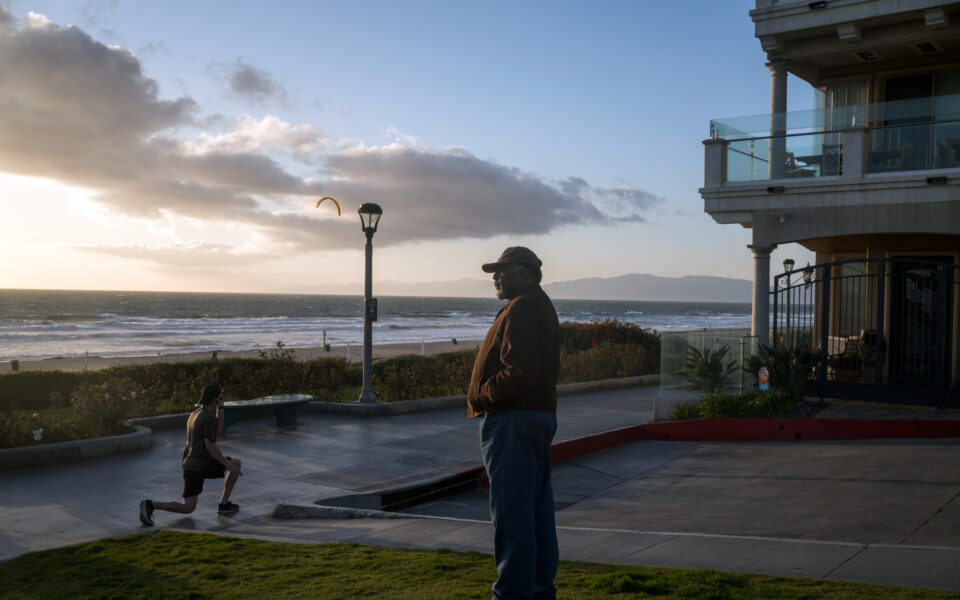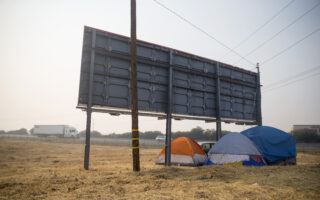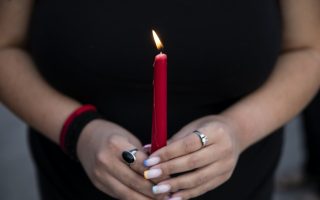Los Angeles county votes to return beach seized in 1924 from a black family

Nearly 100 years after a Black couple’s beachfront property was taken away by a Southern California city, Los Angeles County voted unanimously on Tuesday to return the land to the family in what officials described as an effort to “right the wrongs of the past.”
In an emotional meeting, the Los Angeles County Board of Supervisors voted 5-0 to transfer ownership of the land to the great-grandsons and great-great-grandsons of Charles and Willa Bruce, who bought the property, dubbed Bruce’s Beach, in 1912 in what would become the city of Manhattan Beach, California.
Charles and Willa Bruce used the land to build a resort that other Black families could visit without facing racist harassment. But in 1924, Manhattan Beach officials voted to condemn the land through eminent domain, claiming to need it for a public park.
“It is well documented that this move was a racially motivated attempt to drive out the successful Black business and its patrons,” the county Board of Supervisors said last week in a motion to complete the return of the land.
The Bruces fought to keep their property through litigation, but they failed and lost their business. The city of Manhattan Beach paid them $14,500, and kept the land until it was transferred in 1948 to the state, which transferred it to Los Angeles County in 1955. The county ultimately developed a public park on the nearly 7,000-square-foot parcel.
Following Tuesday’s vote, the transfer to the family will be complete after an escrow process, and the county will then rent the property for $413,000 a year while maintaining a lifeguard training facility there. The family has the option to sell the land later to the county for its estimated value of $20 million.
Anthony Bruce, 39, speaking on behalf of his family, described Tuesday as “bittersweet.”
“On one hand, it’s the answer to our prayers,” Bruce, a great-great-grandson, said. “It’s the relief that we’ve been waiting for. But on the other hand, it’s a reminder of the terrible and tragic events that took place before this happened.”
George C. Fatheree III, a lawyer representing the Bruces, said in a statement Tuesday that the return of the land is believed to be the first time in American history that a Black family has had property returned to them by a government.
Bruce said he hoped to see cases similar to his family’s in the future.
“I believe that this should be the beginning,” he said. “Let this be the drop that creates the ripple that creates the wave that creates the tsunami that covers the country.”
Before the vote on Tuesday, several residents voiced their support for returning the land to the rightful heirs.
Duane Shepard, a descendant of the Bruce family, was among those who spoke at the meeting. He said it was a historic day for his family and the country, and he thanked the Board of Supervisors and other officials for their work.
“We are eternally indebted to you,” Shepard said. “Many walked away from us in our fight, but you stood by us in our leap of faith and stayed pure to our cause in the face of vigorous opposition.”
During the meeting, Janice Hahn, a Los Angeles County supervisor who said last year that she was open to returning the land, said she was hopeful other local governments would follow suit in similar cases.
“We can’t change the past, and we will never be able to make up for the injustice that was done to Willa and Charles Bruce a century ago,” she said. “But this is a start, and by returning the property to their great-grandchildren, we’re allowing them the opportunity to start rebuilding the generational wealth that was denied them for decades.”
Returning the property to the rightful heirs has been a lengthy and complicated process that has prompted criticism and debate.
Fatheree said that there was “no precedent or playbook” for a case like this one.
“We remained focused on the importance of getting this exactly right,” he said. “We are very proud of the result for the Bruce family, but let’s be clear: We should not call this justice. No one can reverse the generations of economic loss borne by this family — it’s impossible to return to the family all that it has lost.”
The descendants of the Bruce family have long called for justice. In June 2020, Kavon Ward, 40, founded a group called Justice for Bruce’s Beach to support the family’s calls for restitution.
In October 2020, Manhattan Beach city officials convened a task force to consider ways to right historical wrongs. The task force recommended an apology for taking the land, which drew sharp criticism from current residents who said that an apology would cast unfair blame on them and the city of about 34,000 residents that is 75% white, according to the latest census. The City Council ultimately voted 4-1 to adopt a “statement of acknowledgment and condemnation” but offered no apology.
Mayor Steve Napolitano of Manhattan Beach did not respond to requests for comment.
Knowing the land was in the possession of Los Angeles County, Hahn said in March 2021 that she was open to returning the land to the Bruces’ descendants. She said then that the seizure of the property was “an injustice inflicted upon not just Willa and Charles Bruce but generations of their descendants who would almost certainly be millionaires if they had been able to keep that beachfront property.”
But returning the land was not possible at the time because the transfer, under California law, would have violated restrictions the state imposed when the land was transferred to the county. That prompted Steven Bradford, a Democratic state senator, to announce in April 2021 that he was introducing a bill that would allow the transfer to happen.
Later that month, the Los Angeles County Board of Supervisors voted to support the bill — which was passed unanimously by the California state legislature on Sept. 30 and signed into law by Gov. Gavin Newsom — and directed the county’s staff to create a plan to return the property.
That process included a land assessment, a property tax evaluation and retention of a third party to determine the legal heirs of the land. The legal heir determination process was completed on May 26, and last week the county announced its plan to return the land.
Ward said that while the bill was necessary for the land to be returned, it took “audacious courage” to bring awareness to the issue. She is now focused on her new organization, Where Is My Land, which seeks to help Black Americans who have had land taken from them to secure restitution.
“It started with advocacy and activism,” she said. “It took someone thinking outside of the box. It took someone courageous to say, ‘This was taken, it needs to be given back.’”
[This article originally appeared in The New York Times.]






